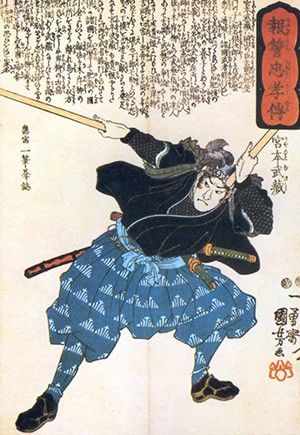In Karate there is a simple test to see if someone knows a Kata or not. You ask them a simple question like; “How many front stances did you just do?” If you get an answer promptly and confidently you know. If not, you also know.

This is because when the student is practicing with mindfulness, they will not only just go through the motions of the Kata, but they will internalize it. They will then learn how to learn even when they are not “physically” practicing.
Still with me…?
Think lightly of yourself and deeply of the world.
— Miyamoto Musashi — A Book of Five Rings
Going through the motions…
I do find myself just going through the motions almost every day. I hate it. Quite often I’ll sit back and be unable to reconcile how the week or month has already passed me by so dang fast. I mean, it’s almost the end of the year already. How did that happen?
I got to thinking about this…
I need to spend more time in contemplation. Resting physically but thinking through things mentally. Truly contemplating the meaning of things that happen or are about to happen. Not only for my business but my personal life and interactions with the world as well.
I need to understand why I react the way I do to things and get ahead of those reactions so I can understand how I am, by knowing what I am. This can be done by thinking outwardly about the world but at the same time keeping my focus inward.
In the well known Samurai tomb Hagakure by Yamamoto Tsunetomo the author postulates that it would be rare if you asked a Samurai about the true meaning of the way of the Samurai and got a quick and concise answer back:
Although it stands to reason that a Samurai should be mindful of the Way of the Samurai, it would seem that we are all negligent. Consequently, if someone were to ask, “What is the true meaning of the Way of the Samurai?” the person who would be able to answer promptly is rare. This is because it has not been established in one’s mind beforehand. From this, one’s unmindfulness of the Way can be known.
The Hagakure
Negligence of my own mindfulness is a real thing and something I do not spend enough time on. Even the most famous of the Samurai are guilty… we all have work to do apparently.
In the very least if I have experienced something whether positive or negative in my daily routine I should take a minute and just think on it. Find my perspective on how what happened or how I reacted fits with my core principles. Then move on.
Not dwell on it, but catalog it, contrast it and set my mind for the very next time something similar occurs. Find and stay in a “data collection” state instead of a “reactionary” state. Then use that data to learn and improve.

